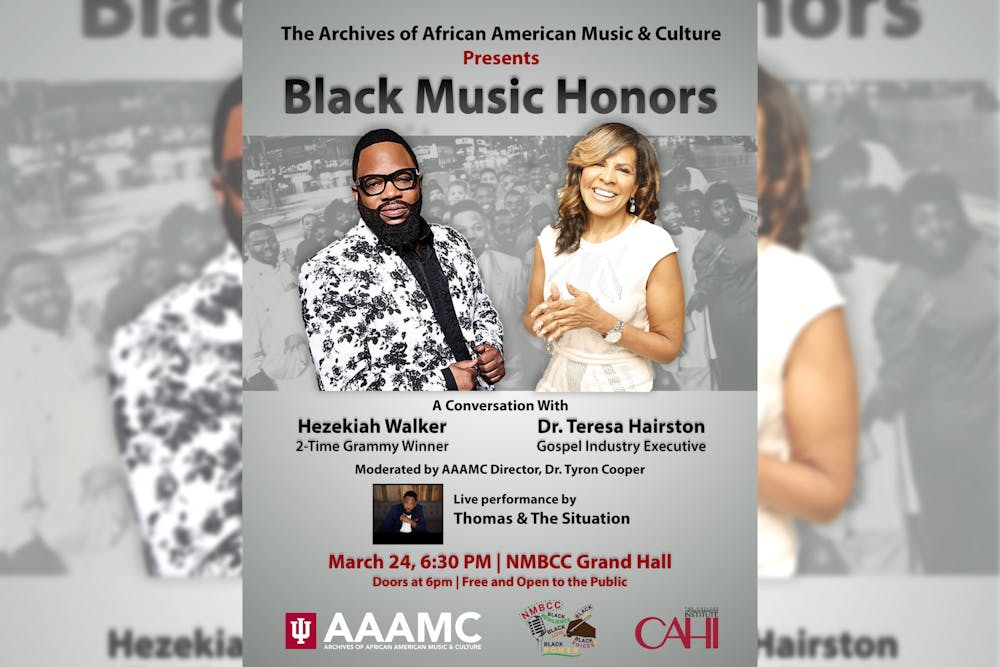The Archives of African American Music and Culture (AAAMC) hosted an event on campus March 24 with Grammy award-winning singer Bishop Hezekiah Walker and gospel music executive Teresa Hairston, Ph.D.
Established in 1991 by Dr. Portia Maultsby, Ph.D., the AAAMC is a repository of materials covering a range of African American musical idioms and cultural expressions from the post-World War II era, according to its website.
The event was attended by IU faculty, staff and students, as well as members of the surrounding Bloomington community. It showed just how impactful gospel music has been on people from various backgrounds throughout history.
Tyron Cooper, Ph.D., associate professor in the African American and African Diaspora Studies department, moderated the event and is also the director of AAAMC.
He’s worked at IU since 1999 and has worked extensively to ensure Black music and culture remain an integral part of society and culture on the campus.
The event opened with a special performance from music group “Thomas and the Situation” as they sang one of Hezekiah Walker’s most famous songs, “Every Praise,” giving the audience a chance to participate in praise and worship.
“Every Praise” was honored as the gospel song of the decade in 2019 and remained at the top of the charts for 75 weeks, Cooper said during the event.
In addition to this, Walker has a Center for Gospel Music located at Virginia Union University where students are able to learn about gospel music as well as the business behind it.
Cooper said Hezekiah Walker has been leading the gospel charts since the 1980’s and has a track record of sustaining gospel choirs in the industry.
“He is the ambassador of gospel choirs,” Cooper said. “He is called the hip hop pastor because many artists attend his church like Lil Kim, Puff Daddy and many other household names.”
Aside from his contributions to the church and gospel arena, Walker gives back to the community.
“He is feeding the community both spiritually and socially,” Cooper said. “With the contributions that these two have made, collectively they have broadened the scope of what gospel music is in terms of the musical parameters of gospel music and its image of moving it beyond the church.”
As a gospel music executive, Hairston founded the “Gospel Today” magazine in 1989, which was the magazine of choice at the time for African American Christians, according to an article released by Faithfully Magazine. This magazine ran for 20 years and is continued in an online form by Hairston’s son.
Aside from this, Hairston has worked relentlessly to preserve Black gospel music and culture through the creation of a gospel news show and the Gospel Heritage Foundation.
Cooper said gospel music gets the least promotion, but it is one of the most significant genres within the Black musical world.
“We could have chosen any genre but wanted to start and focus on gospel music, because it is at the core of broader Black popular music and American music,” Cooper said. “Many of the stars we now know from Aretha Franklin to Kanye West, have gospel music as their core experience.”
Bringing such gospel powerhouses to a predominantly white institution is nothing short of amazing.
AAAMC awarded Walker and Hairston with their first ever Black Music Honors award. On top of this, March 24 will now be recognized as Bishop Hezekiah Walker and Teresa Hairston day in the City of Bloomington.
“It is time for our voices to be heard and our contributions acknowledged,” Cooper said.




